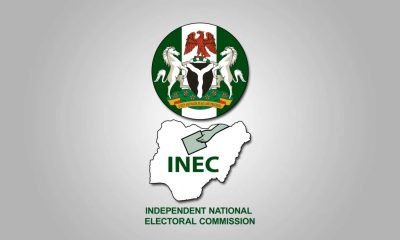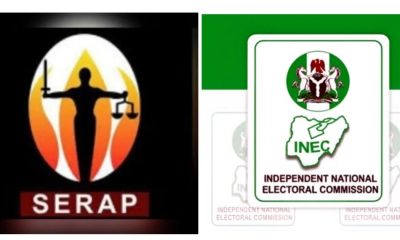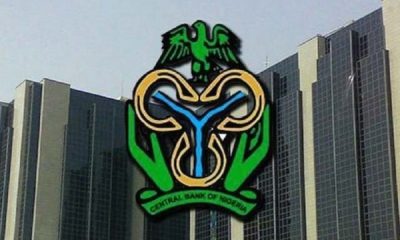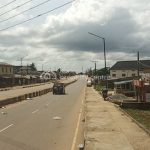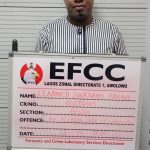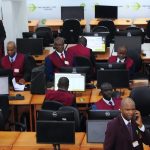General
SERAP Wants Privacy Details of Election Data from INEC
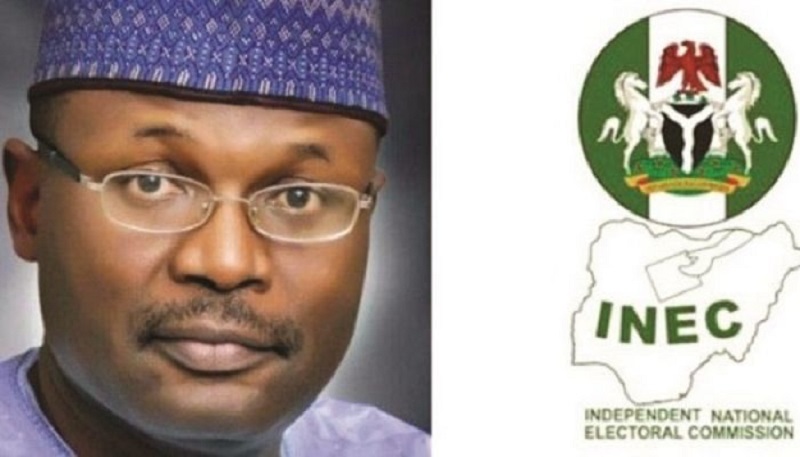
By Adedapo Adesanya
The chairman of the Independent National Electoral Commission (INEC), Mr Mahmood Yakubu, has been urged to publish the details of safeguards and mechanisms put in place to protect the privacy and security of election information and data in the custody of the organisation, including in its servers, databases and other electronic formats.
This appeal was made by the Socio-Economic Rights and Accountability Project (SERAP) in a Freedom of Information (FoI) request dated March 26, 2022.
In the document signed by SERAP deputy director, Mr Kolawole Oluwadare, SERAP urged him to “clarify whether any third-party is involved in the collection, control, and use of election information and data, the legal rules and processes guiding the choice of any such third party”.
SERAP also urged him to “clarify the other location or locations where election information is stored apart from Abuja, and the details of any third-party who has access to such a database, the safeguards and contingency plans put in place by INEC to address any threats to the privacy and security of election information”.
“Ensuring adequate safeguards and mechanisms to protect the privacy and security of election information and data would improve the ability of INEC to effectively discharge its constitutional and statutory duties”.
SERAP said: “This would also help to remove risks of attack and unlawful interference by any unauthorised person with election information and data”.
According to SERAP, “Widely publishing the details of safeguards and mechanisms of election data and information would also contribute to improving the sanctity and integrity of the electoral process, and public trust and confidence in the process”.
The letter, read in part: “Putting in place adequate technological security measures to prevent unauthorized access to election information and data would improve the credibility of the electoral process and the enjoyment of people’s right to participate in their own government.
“As an institution, which collects, controls and uses election-related information and data in the discharge of its constitutional and statutory duties, INEC has a legal responsibility to ensure adequate protection of such information and data from threats and vulnerabilities to attack or interference.
“Any interference by unauthorised third party in election information and data may be used for corrupt, political and other unlawful purposes, and would expose election systems to fraud and meddling, as well undermine the right to participation and the country’s democratic system.
“The right of people to participate in their government is a fundamental feature of any democratic society, and any infringement of privacy and security of election information and data would strike at the heart of representative government.
“We would be grateful if the recommended measures are taken within 7 days of the receipt and/or publication of this letter. If we have not heard from you by then, SERAP shall consider appropriate legal actions to compel INEC to comply with our request in the public interest.
“SERAP notes that voter registration systems and voting systems are the most vulnerable and susceptible to manipulation by corrupt politicians and other actors.
“As the experiences in other countries have shown, election information is often susceptible to unlawful interference by corrupt politicians and other actors, which can be damaging to the integrity of the electoral process and democratic practices.
“The experiences of other countries demonstrate the need for INEC to take effective and transparent measures to ensure and protect the privacy and security of election information and data, which would protect the integrity of the country’s democracy.
“Any privacy or security weakness in any component of any of the election systems can be easily exploited to cast doubt on the integrity of the electoral process.
“Our requests are brought in the public interest, and in keeping with the requirements of the Nigerian Constitution 1999 [as amended], the Electoral Act, the Freedom of Information Act, and the country’s international obligations including under the African Charter on Human and Peoples’ Rights, and the African Charter on Democracy, Elections, and Governance.
“SERAP notes that Section 9(2)(a) of the Electoral Act 2022 provides that INEC ‘shall keep the Register of Voters in its National Headquarters and other locations as the Commission may determine.’ The provision also states that INEC ‘shall keep the Register of Voters in electronic format in its central database.’
“Section 153 of the Act defines ‘electronic format’ to include ‘the electronic version of the Register of Voters or National Electronic Register of Election Results, as the case may be, created, recorded, transmitted or stored in digital form or in other intangible forms by electronic, magnetic or optical means or by any other means.”
The organisation said: “Section 37 of the Nigerian Constitution, article 17 of the International Covenant on Civil and Political Rights, and article 5 of the African Charter on Human and Peoples’ Rights protect against arbitrary or unlawful interference with one’s privacy.
“Interference with the privacy of election information and data would clearly undermine the security of any such information and data. Similarly, Article 9 (1) of the African Charter provides that, ‘Every individual shall have the right to receive information.
“Article 2(10) of the African Charter on Democracy, Elections, and Governance requires states parties including Nigeria to ‘promote the establishment of the necessary conditions to foster citizen participation, transparency, access to information, and accountability in the management of public affairs.’”
General
FG Dismantles Roadside Levies Nationwide
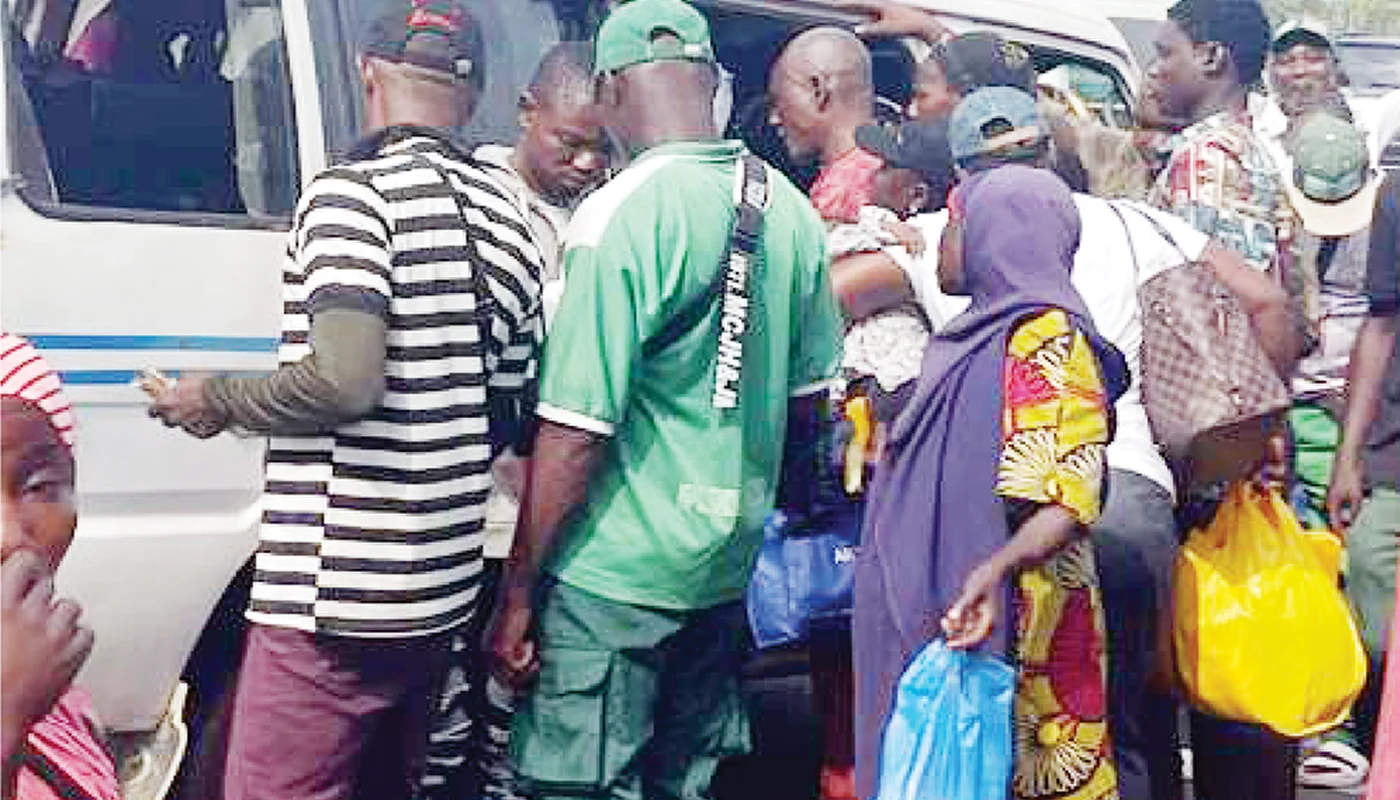
By Adedapo Adesanya
The federal government has banned the mounting of roadblocks for the collection of taxes and levies nationwide as part of a sweeping reform of the country’s tax administration system.
It also signed a new Presumptive Tax Framework (PTF) aimed at bringing millions of small and informal businesses into the formal economy through simplified tax processes.
According to the Executive Secretary of the Joint Revenue Board (JRB), Mr Olusegun Adesokan, the new framework expressly prohibits the use of roadblocks by tax officials to collect levies, which has been heavily criticised by businesses and transport operators.
“It also bans the mounting of roadblocks for the collection of taxes,” he said.
He further disclosed that the framework outlaws cash collection by tax authorities and promotes the use of technology-driven payment systems to ensure transparency and accountability.
“Apart from encouraging the use of technology for payment of taxes and cash collection, it bans all forms of cash collection by tax authorities,” Mr Adesokan added.
The Minister of Finance and Coordinating Minister of the Economy, Mr Wale Edun, described the PTF as a key component of the tax reform programme under the administration of Bola Ahmed Tinubu.
Mr Edun said the framework is designed to expand the nation’s tax base while protecting small businesses from excessive burden.
According to him, the presumptive tax system will rely on clear indicators such as business category and turnover levels rather than complex accounting requirements.
“The objective of presumptive taxation is not to overburden small businesses, but to provide a fair, simple and predictable framework for tax compliance,” he said.
He stressed that the government’s fiscal strategy is anchored on widening the tax net instead of increasing tax rates.
“Our fiscal strategy is anchored on expanding the tax base rather than increasing tax rates. Inclusion drives sustainability,” the minister said.
Mr Edun noted that micro and small enterprises form the backbone of Nigeria’s economy and that the framework seeks to reduce compliance costs while creating a structured pathway for them to transition into the formal sector.
He added that the regulations would provide clarity for tax authorities across the country and protect taxpayers from arbitrary assessments.
“These regulations provide clarity to tax authorities and protect taxpayers from arbitrary assessments. The system will be transparent, rules-based and nationally consistent,” he said.
He also said that strengthening non-oil revenue through a broader tax base would enhance the government’s capacity to fund infrastructure, security, social investment and economic growth.
The minister explained that the regulations were developed in collaboration with the JRB to ensure alignment between federal and state tax administrations.
Earlier, Mr Adesokan described the framework as a major step towards making the tax system fairer for ordinary Nigerians.
He said the reform reflects President Tinubu’s commitment to ensuring that the tax system supports economic growth rather than placing pressure on struggling citizens.
“This revolution is another demonstration of President Bola Ahmed Tinubu’s commitment to taxing prosperity and not poverty,” he said.
Mr Adesokan disclosed that businesses with an annual turnover of up to N50 million would be exempted from tax under the new arrangement.
“It ensures that our nano and small businesses with an annual turnover of 50 million naira are exempted from tax,” he said.
He explained that the exemption would allow small entrepreneurs to retain capital for growth before eventually entering the tax system, while other informal businesses above the threshold would be subject to a simplified turnover-based tax rate.
General
Ayobo Ipaja LCDA Declares Zero-Tolerance for Indiscriminate Waste Disposal
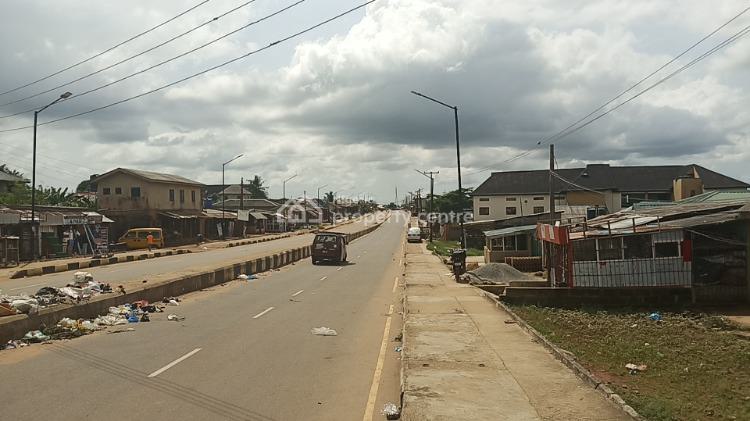
By Dipo Olowookere
The chairman of the Ayobo-Ipaja Local Council Development Area (LCDA), Mr Agbaje Lukmon Abiodun, has taken a bold and decisive step towards restoring environmental order in the council.
He has deployed smart and space-saving cleaning equipment to clear heaps of accumulated waste along the road median on the Camp Davies/Isefun Road, Ayobo.
The council chief expressed optimism that the intensive clean-up operation would directly tackle the long-standing issue of indiscriminate refuse dumping in the area.
He disclosed that he took this step because indiscriminate waste disposal poses serious environmental and safety risks to residents and commuters within the axis.
At the clean-up exercise, the Head of Environmental Development, Mrs Babajide Racheal, who represented the chairman, reiterated his administration’s zero-tolerance stance on environmental violations, calling on residents to take collective responsibility by properly disposing of waste through approved Private Sector Participation (PSP) operators.
“We will no longer tolerate actions that endanger public health and degrade our environment. Together, we must build a cleaner, safer, and healthier community,” Mr Agbaje stated.
As part of ongoing sanitation reforms, the council has strengthened monitoring mechanisms and enforcement strategies, including strict penalties for defaulters.
He reaffirmed his dedication to preserving the cleanliness and aesthetic appeal of Camp Davies/Isefun Road and the surrounding communities.
This clean-up campaign reflects the administration’s broader commitment to sustainable environmental management, improved infrastructure, and enhanced public health standards across the LCDA.
General
Reprieve for Nigerians as NERC Orders DisCos to Refund N20.33bn in Meter Charges

By Adedapo Adesanya
The Nigerian Electricity Regulatory Commission (NERC) has ordered electricity distribution companies to refund a total of N20.33 billion in outstanding meter costs.
This was from a judgment contained in Order No: NERC/2026/025, which amends the previous 2023 order, was signed by the NERC Chairman, Mr Musiliu Oseni, and the Commissioner, Legal, Licensing & Compliance at NERC, Mr Dafe Akpeneye, on February 27, 2026.
According to the new order, DisCos are to recover and fully disburse the fund to affected customers over 12 months from March 1, 2026.
Under the Meter Asset Provider framework (MAP) scheme, customers pay for meters and are refunded by their DisCos through energy credits.
However, the commission noted that the level of refunds had been very slow over the years, necessitating a new order.
NERC stated that, as of December 31, 2025, DisCos had failed to reimburse customers for meters procured under the MAP framework, leaving an outstanding N20.33 billion.
The order is intended to prevent repeated delays in reimbursements, optimise customer notification, and strengthen sector credibility and confidence.
“In February 2026, the commission reviewed the level of compliance of DisCos with the expected reimbursement to customers who have paid for meters under the MAP framework.
According to the new order, DisCos have an outstanding amount of N20.33 billion to reimburse customers for meters procured under the MAP framework as of December 31, 2025.
The electricity market regulator stated that all reimbursements to customers for meters procured under the MAP framework would be fully automated on customer accounts, saying, “DisCos shall ensure that the total cost of a MAP meter is recognised as credit on the customer’s account upon activation of the meter and disbursed automatically as monthly credits over the approved amortisation period.”
DisCos were also instructed that meter reimbursement credits cannot be offset against customer legacy debt.
“DisCos shall not offset meter reimbursement credits against customer legacy debts; the items must be treated separately,” the order stated.
For prepaid customers, DisCos must automatically generate monthly tokens representing the reimbursement, while for postpaid customers, the reimbursement must appear as a distinct credit on their bills.
NERC said, “For customers with prepaid meters, no later than the 4th day of every month, the DisCo’s billing system will automatically generate a token with an energy value equivalent to the monthly reimbursement which the customer is due to receive over the 120-month amortisation period based on the prevailing tariff for the customer.
“For post-paid customers, the monthly reimbursement of the cost of a MAP meter shall appear as a distinct credit line item which is expected to be subtracted from the customer’s total payable for the month.”
NERC also mandated monthly reporting and a dedicated complaints channel for affected customers.
“All DisCos shall file monthly reports with the Commission detailing the total monetary value of the reimbursement to customers through energy credit, in accordance with the template approved by the Commission.
“All DisCos shall establish a dedicated email address for the receipt of complaints from customers who have not received MAP meter cost reimbursements. Details of such complaints, including the status of their resolution, shall form part of the monthly compliance reports submitted to the commission,” it said.
To recover the N20.33 billion arrears, the firms are to accelerate repayment over 12 months. The order noted that prepaid customers will receive two tokens per month, while postpaid customers will see two reimbursement line items on their bills.
-

 Feature/OPED6 years ago
Feature/OPED6 years agoDavos was Different this year
-
Travel/Tourism10 years ago
Lagos Seals Western Lodge Hotel In Ikorodu
-

 Showbiz3 years ago
Showbiz3 years agoEstranged Lover Releases Videos of Empress Njamah Bathing
-

 Banking8 years ago
Banking8 years agoSort Codes of GTBank Branches in Nigeria
-

 Economy3 years ago
Economy3 years agoSubsidy Removal: CNG at N130 Per Litre Cheaper Than Petrol—IPMAN
-

 Banking3 years ago
Banking3 years agoSort Codes of UBA Branches in Nigeria
-

 Banking3 years ago
Banking3 years agoFirst Bank Announces Planned Downtime
-

 Sports3 years ago
Sports3 years agoHighest Paid Nigerian Footballer – How Much Do Nigerian Footballers Earn



